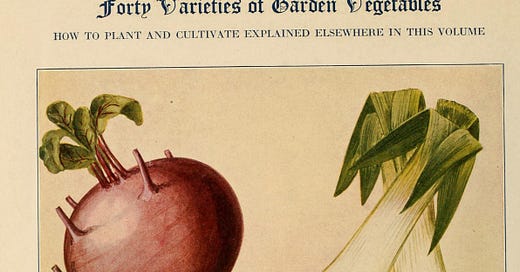Is it normal to cry over rotten produce?
Plus: The ethics of hunting, and icing your drinks with glaciers.
Content warning: I talk about food stuff, including climate orthorexia.
Do you cry over rotten produce?
Well, I have, when some vegetables or—heaven forbid—some fruit from our CSA has gone bad in the fridge or on the counter before we could eat it. And I’m not talking about a few delicate drops, but ugly outbursts—sour, bitter, angry tears.
I have asked my…
Keep reading with a 7-day free trial
Subscribe to Pinch of Dirt to keep reading this post and get 7 days of free access to the full post archives.


